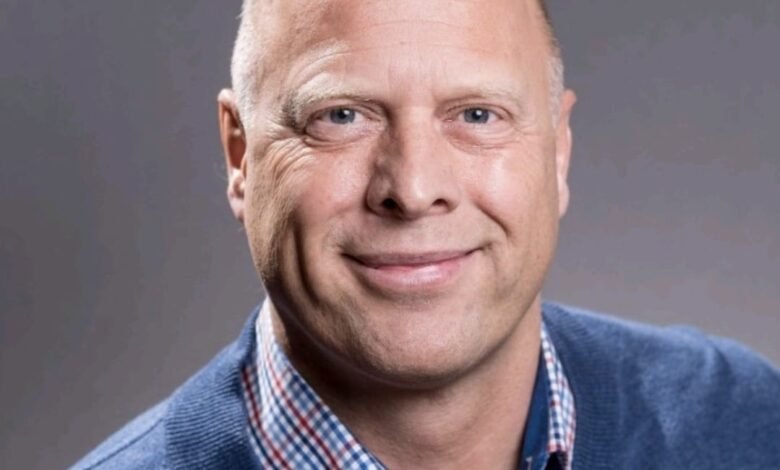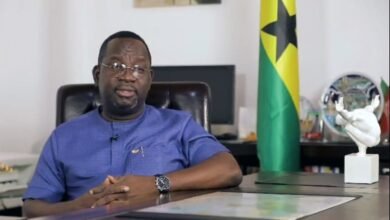“Patrick Upmann on Africa’s AI Future: Leadership, Trust, and the Launch of AIGN Africa”

In this exclusive interview with New Africa Magazine, Patrick Upmann—Founder of the Artificial Intelligence Governance Network (AIGN)—discusses the critical role of leadership in shaping Africa’s AI trajectory. As AIGN launches its Africa Hub, Upmann stresses that AI governance must go beyond compliance to become a cultural and strategic priority. He outlines a vision where African leaders, institutions, and innovators take control of their digital future through inclusive, ethical, and community-driven frameworks.
By Karima Rhanem, Senior Managing Editor
“AI Governance is a leadership decision.” In practical terms, what does this mean for African CEOs, policymakers, and tech leaders?
AI governance begins and ends with leadership. For African CEOs, policymakers, and innovators, it means proactively setting the direction for technology in their organizations and countries. The decisions made today will shape whether AI is a tool for empowerment and inclusion or a missed opportunity. True leadership means taking ownership, making AI governance a strategic priority, and ensuring Africa’s values and interests drive adoption and innovation.
What are the consequences of treating AI governance as merely a compliance checkbox rather than a cultural shift within organizations?
Treating governance as a box-ticking exercise is a critical risk. It blinds organizations to deeper challenges—like bias, ethical blind spots, and trust erosion. This stifles innovation and exposes companies to regulatory and reputational dangers. Real transformation happens when AI governance becomes a lived value—a culture that enables both innovation and public trust.
How can we ensure AI responsibility is measurable and actionable—especially in countries where governance structures are still developing?
Progress doesn’t wait for perfect regulation. Even in developing contexts, responsibility can be made tangible: with transparent KPIs, pilot audits, community engagement, and explainable algorithms. It’s about building trust step by step, showing measurable results, and inviting civil society into the process.
SECTION 2: TRUST, POWER & META’S WARNING SHOT
You described Meta’s decision to train AI using European user data without explicit consent as a “warning shot.” What message should African regulators and platforms take from this situation?
This is a clear warning: if African nations don’t define their own rules for AI and data, someone else will—often without local interests in mind. Africa should take the lead in setting frameworks that demand consent, accountability, and digital rights. Writing the rules today protects citizens and creates space for homegrown innovation.
Do you believe African countries are more vulnerable or more agile when it comes to protecting citizens’ data rights in the face of Big Tech power?
Africa is both—vulnerable due to infrastructure gaps, but highly agile due to fewer legacy constraints. This agility is a powerful asset: it allows African nations to leapfrog to the most modern, rights-based frameworks. With the right political will and cross-border collaboration, Africa can set new standards for digital trust.
What would a truly African model of AI trust and governance look like—one that isn’t just imported from Brussels or Washington?
A truly African model would blend global best practices with local wisdom, prioritizing community, participation, and data sovereignty. It would focus on collective rights, respect for diversity, and ethical stewardship rooted in Africa’s own values and realities. This is the approach AIGN Africa is championing as a newly launched hub for responsible AI.
The AI Governance Network (AIGN) has grown rapidly across 50+ countries. What does this expansion reveal about global demand for new AI norms?
The rapid global growth of AIGN reflects a universal hunger for trustworthy, actionable AI frameworks. Organizations everywhere want more than compliance—they want real-world solutions that enable innovation and protect rights. With the launch of AIGN Africa as a regional hub, we are responding to strong demand for locally relevant, globally connected guidance, empowering African leaders to shape AI’s future.
Could you share examples of how AIGN is influencing real-world practices—especially in education, where Africa has a large youth population?
AIGN Africa is working with schools, universities, and EdTech providers to roll out the AIGN Education Trust Label—certifying responsible, transparent, and fair use of AI in classrooms. We help educational institutions design systems that empower teachers and students, building trust and ensuring that technology is truly a tool for learning, not a black box.
How can African institutions, startups, and governments get involved in AIGN’s “living lab” approach to AI ethics and innovation?
We invite African ministries, universities, startups, and NGOs to join our pilots, working groups, and training programs. Participation means access to global expertise, cutting-edge tools, and a platform for local voices to lead. With AIGN Africa as a hub, institutions can co-create Africa’s own AI future, supported by a network that spans the continent and beyond.
You’ve raised alarms about the governance gap in AI for education—particularly with only 3% of education ministries having AI policies. What risks do African students face without clear AI guidance in schools?
The risks are real: without clear rules, students face bias, lack of transparency, and loss of control over their data. This can reinforce inequality and stifle Africa’s immense talent pool. Robust governance is essential to protect students, foster trust, and unlock opportunity.
How does the AIGN Education Trust Label address concerns like data transparency and algorithmic accountability in classrooms? Could this model be adapted for African contexts?
The AIGN Education Trust Label offers clear, flexible standards for data protection and algorithmic explainability—adaptable to any national or local context. In Africa, this means ministries and schools can set the bar for trustworthy AI even before national regulation is fully developed, putting local actors in control.
What role should ministries of education and accreditation bodies in Africa play in shaping the AI-driven learning systems of the future?
They are central actors—setting minimum standards, investing in capacity, and ensuring AI in education is inclusive, empowering, and safe. With AIGN Africa, we support these institutions to share knowledge, benchmark best practices, and build regional momentum for responsible innovation.
In your article “The New AI Specialization”, you stress that AI governance isn’t just technical—it’s cultural and strategic. How should Africa build talent pipelines that reflect this interdisciplinary need?
Africa should prioritize education and training that combines technology, law, ethics, and leadership. The strongest talent will come from those who bridge disciplines and cultures. With AIGN Africa, we are building partnerships, scholarships, and mentorships that accelerate the next generation of African AI leaders.
Do you see AI governance becoming a standalone profession? What skills or background would be essential for someone entering this field from Africa?
Absolutely—AI governance is emerging as a distinct field. Key skills include systems thinking, regulatory and ethical understanding, cultural competence, and the ability to connect policy with technology. For African professionals, the ability to localize solutions and engage with communities is just as important as technical know-how.
If you could offer one piece of advice to African leaders preparing for AI integration, what would it be?
Don’t wait for perfect regulation. Lead with your own vision, ground innovation in local values, and learn by doing. AIGN Africa is here to support you in shaping this journey.
What does a successful, future-ready, and trusted African AI ecosystem look like to you in 2030?
It’s diverse, resilient, and proudly African—homegrown solutions for African challenges, world-class talent shaping the global debate, and digital sovereignty made real. The future belongs to those who lead—and Africa’s youth are ready.
About the Author:
Patrick Upmann is Founder of AIGN – Artificial Intelligence Governance Network, now launching AIGN Africa as a regional hub for responsible AI and digital trust. He advises governments, organizations, and innovators worldwide as a keynote speaker, consultant, and thought leader for AI governance and ethical transformation.





